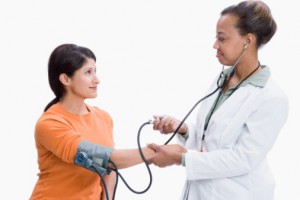There are many benefits to breast feeding, but is it harmful to your child’s health when you are sick with a cold or virus?
 Even when you are sick, your baby will almost always benefit from breastfeeding. In most instances, viruses are most likely transmitted before symptoms even occur. Breast feeding can actually help protect your baby from the virus since your breast milk produces the necessary antibodies to stave off the illness. In fact, even if your baby gets sick, it is usually a much milder case than anyone else in the house.
Even when you are sick, your baby will almost always benefit from breastfeeding. In most instances, viruses are most likely transmitted before symptoms even occur. Breast feeding can actually help protect your baby from the virus since your breast milk produces the necessary antibodies to stave off the illness. In fact, even if your baby gets sick, it is usually a much milder case than anyone else in the house.
It is not a good idea for you to stop breast feeding abruptly because your breasts can become engorged, which can lead to painful inflammation, known as mastitis. Instead, while you are sick, ask a family member to bring the baby to you to nurse and take him way when you’re done so you can rest. Also, drink plenty of fluids when you are sick so you don’t become dehydrated and your milk supply does not decrease.
Some moms may also be concerned about taking medications while breastfeeding, but with few exceptions, over the counter medications are just fine. Some suggestions include:
• Avoid using extra or maximum strength pain medication or fever reducers.
• Medications that contain ibuprofen are recommended over those that contain acetaminophen.
• Try to use single ingredient, short acting forms of cold, cough, and allergy medications.
• Avoid taking aspirin as there is a small risk of infants developing Reye’s syndrome.
It is important however to carefully read medication labels and check with your physician before taking any drug while you are nursing. If you do not have a doctor, contact Flushing Hospital’s Women’s Health Center at 718-670-8994 to make an appointment.
All content of this newsletter is intended for general information purposes only and is not intended or implied to be a substitute for professional medical advice, diagnosis or treatment. Please consult a medical professional before adopting any of the suggestions on this page. You must never disregard professional medical advice or delay seeking medical treatment based upon any content of this newsletter. PROMPTLY CONSULT YOUR PHYSICIAN OR CALL 911 IF YOU BELIEVE YOU HAVE A MEDICAL EMERGENCY.




 We have all seen the news reports about the tiny, disgusting germs that are on the surfaces we all encounter every day in our homes and places of work. With cold and flu season upon us, preparations are now being made by many to prevent transmission of viruses, but before you go through drastic measures, there are some important facts about viruses that you should know, such as how long do viruses live on our phones, doorknobs, and keyboards?
We have all seen the news reports about the tiny, disgusting germs that are on the surfaces we all encounter every day in our homes and places of work. With cold and flu season upon us, preparations are now being made by many to prevent transmission of viruses, but before you go through drastic measures, there are some important facts about viruses that you should know, such as how long do viruses live on our phones, doorknobs, and keyboards?
 The holidays are supposed to be about joy and merriment, but for many they can become a very stressful time of year.
The holidays are supposed to be about joy and merriment, but for many they can become a very stressful time of year. y calories and although there is no direct link between alcohol and obesity, research has shown it can be a reason to why people may place more on their plate than necessary. Trusted websites, such as Medicine.net reported, “Studies have shown that in the short term, alcohol stimulates food intake and can also increase feelings of hunger. Having your judgment impaired and stimulating your appetite is a recipe for failure if you are trying to follow a weight-loss plan.” A Margarita with chips and salsa may sound appetizing, but the calories in a Margarita drink can be as high as 270 empty calories; a reason the bowl of chips seem endless. Here are few other drinks and their calories to keep in mind the next time you’re out for lunch, dinner or happy hour:
y calories and although there is no direct link between alcohol and obesity, research has shown it can be a reason to why people may place more on their plate than necessary. Trusted websites, such as Medicine.net reported, “Studies have shown that in the short term, alcohol stimulates food intake and can also increase feelings of hunger. Having your judgment impaired and stimulating your appetite is a recipe for failure if you are trying to follow a weight-loss plan.” A Margarita with chips and salsa may sound appetizing, but the calories in a Margarita drink can be as high as 270 empty calories; a reason the bowl of chips seem endless. Here are few other drinks and their calories to keep in mind the next time you’re out for lunch, dinner or happy hour:
 Thinking about escaping the germy, New York City winter season? This is a popular time of year to hop a flight to a tropical location, but did you know that air travelers are actually up to 100 times more likely to catch a cold or the flu while flying than during normal day-to-day activities.
Thinking about escaping the germy, New York City winter season? This is a popular time of year to hop a flight to a tropical location, but did you know that air travelers are actually up to 100 times more likely to catch a cold or the flu while flying than during normal day-to-day activities.